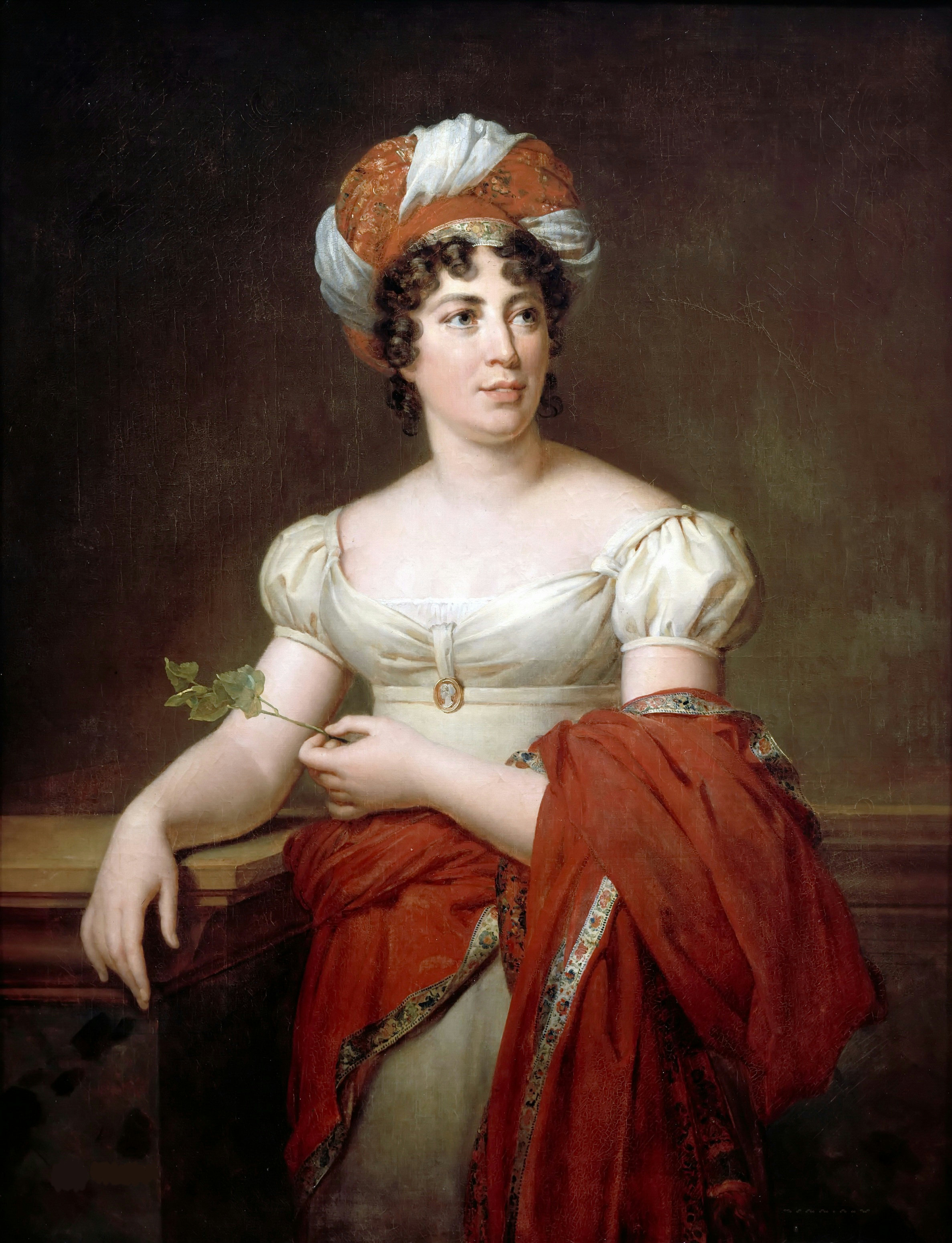Origine: Da La Germania, libro XIII, cap. IV, 1810.
Germaine de Staël frasi celebri
Origine: Citato in Focus, n. 115, p. 170.
Origine: Da Considérations sur les principaux événements de la Révolution française, Parigi, 1818.
Origine: Da Corinne, 1807, in Lettere a E. G. Lambert, Mosca, 1915.
“O donne, voi siete le vittime del tempio in cui siete adorate.”
Origine: Citato in Giovanni De Castro, Proverbi italiani illustrati, Francesco Sanvito, 1858, p. 303 http://books.google.it/books?id=o2cxAQAAMAAJ&pg=PA303
Sulla maniera e la utilità delle Traduzioni
Sulla maniera e la utilità delle Traduzioni
“Di tutti gli uomini che io non amo, questo è quello che preferisco.”
Origine: Ghislain de Diesbach, Madame de Staël, Perin Editeur, 2008. Riferito al barone de Staël, di 17 anni più anziano, che ha sposato in giovanissima età.
Germaine de Staël: Frasi in inglese
Bk. 13, ch. 4, as translated by Letitia Elizabeth Landon for Isabel Hill (1833)
Corinne (1807)
“All that is natural is varied.”
Tout ce qui est naturel est varié.
Bk. 1, ch. 4
Corinne (1807)
“Ought not every woman, like every man, to follow the bent of her own talents?”
Bk. 14, ch. 1
Corinne (1807)
La vue d'un tel monument est comme une musique continuelle et fixée, qui vous attend pour vous faire du bien quand vous vous en approchez.
Bk. 4, ch. 3
The idea that "architecture is frozen music" — an aphorism of disputed origin sometimes misattributed to de Staël — is found in a number of German writers of the period.
Corinne (1807)
“We cease loving ourselves if no one loves us.”
On cesse de s'aimer si quelqu'un ne nous aime.
Sophie, or The Secret Sentiments (Sophie, ou les sentiments secrets, 1790), Act 2, sc. 8
“The human mind always makes progress, but it is a progress in spirals.”
Probably a paraphrase of this line from De l’Allemagne, Pt. 3. ch. 10. "Goethe has made a remark upon the perfectability of the human mind, which is full of sagacity: It is always advancing, but in a spiral line." Not known from Goethe's works.
Misattributed
“The desire of the man is for the woman, but the desire of the woman is for the desire of the man.”
Sometimes published as an anonymous saying, this was attributed to Bishop Samuel Wilberforce in Is It Nothing To You? Social Purity, A Grave Moral Question (1884) by Henry Rowley, p. 88; to Samuel Taylor Coleridge in "Would You Be Re-elected", Munsey's Magazine (April 1909), p. 769; and to de Staël in Aspects of Western Civilization : Problems and Sources in History (2003), p. 294
Disputed
L'esprit consiste à connaître la ressemblance des choses diverses et la différence des choses semblables.
Pt. 3, ch. 8
De l’Allemagne [Germany] (1813)
“Danger is like wine, it goes to your head.”
Bk. 12, ch. 2
Corinne (1807)
“The admiration of the beautiful always has relation to the Divinity.”
Pt. 4, ch. 1
De l’Allemagne [Germany] (1813)
Originale: (fr) L'admiration pour le beau se rapporte toujours à la Divinité.
“Religion is nothing, if it is not everything; if existence is not filled with it.”
Pt. 4, ch. 1
De l’Allemagne [Germany] (1813)
Originale: (fr) La religion n'est rien si elle n'est pas tout, si l'existence n'en est pas remplie.
The Influence of Literature upon Society (De la littérature considérée dans ses rapports avec les institutions sociales, 1800), Pt. 2, ch. 4
